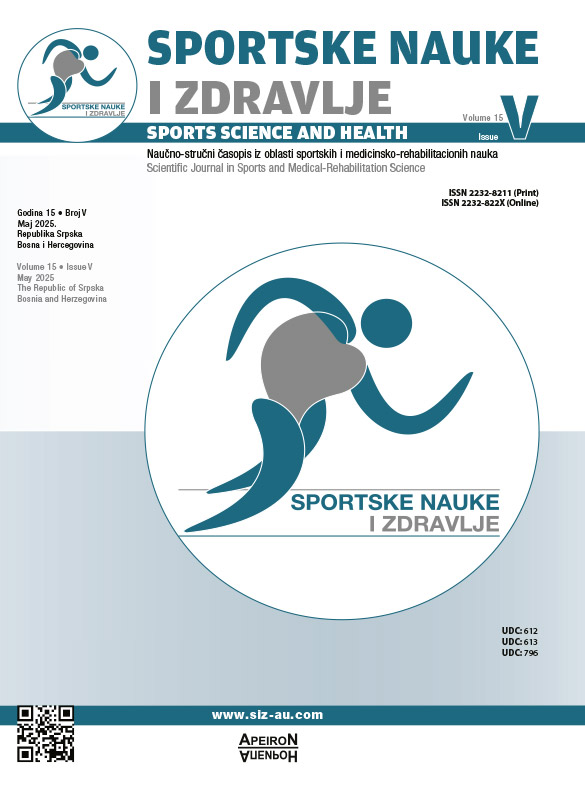HRV Monitoring and Recovery Rates: An Experimental Study on Young Tennis Atheltes
DOI:
https://doi.org/10.7251/SSH25V040CKeywords:
Heart rate variability, Tennis, young athletes, RMSSDAbstract
Heart rate variability (HRV) represents time variation between consecutive heartbeats and reflects the ability of the autonomic nervous system to adapt to different stimuli. Despite the growing focus on HRV as indicator of recovery in athletes, there is a lack in scientific literature on how HRV and recovery indices manifest and vary in young tennis athletes, limiting the understanding of physiological dynamics and strategies for optimizing recovery for these athletes. The aim is to identify specific patterns of physiological adaptation during the post-training and competition recovery process. The study aims to understand how HRV characteristics may reflect fatigue, recovery and response to physical stress, with the goal of developing strategies for recovery and performance optimization for this specific population. The study involved 120 young tennis athletes aged 16-18 years old, with 3 years of experience in the sport. The results showed a weak positive correlation with training performance (0.027) and a weak negative correlation with match performance (-0.010). The RMSSD shows weak positive correlations with both training performance (0.013) and match performance (0.031). The LF/HF ratio has a negative correlation with the training performance (-0.206) and there is a weak positive correlation with the match performance (0.110). The results underline the need for a holistic and multifactorial approach to optimize the performance of young tennis athletes. Regular monitoring of HRV provides valuable information on the balance of the autonomic nervous system and the athlete’s recovery status but should be complemented by other assessments such as psychological assessments and skill-based tests.
